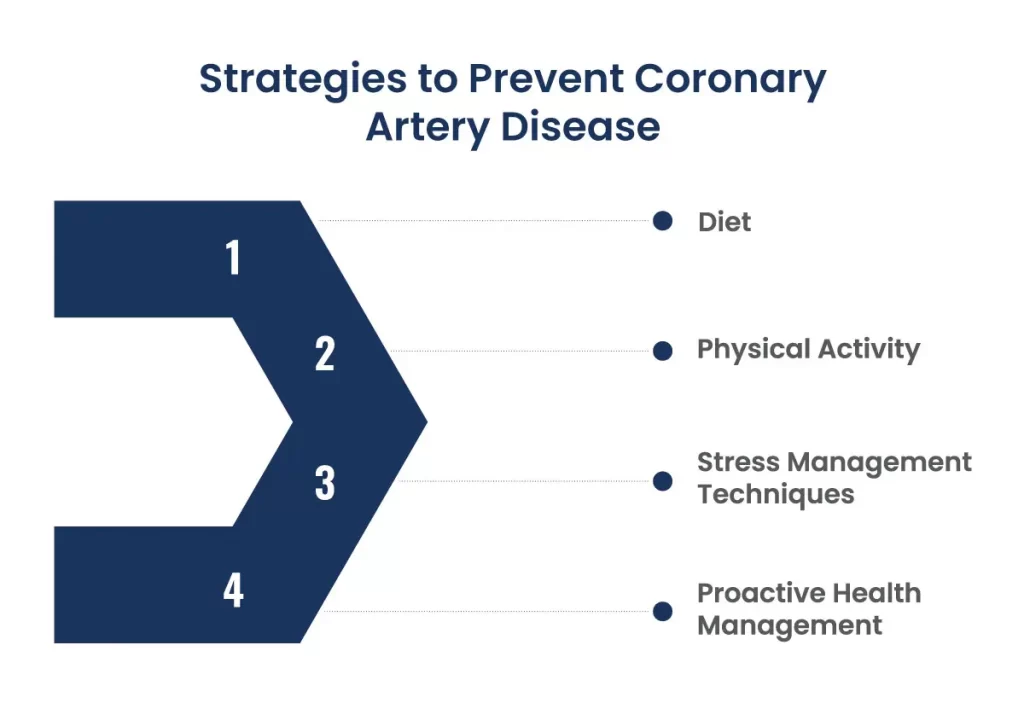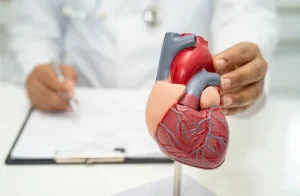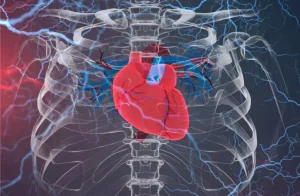Coronary artery disease (CAD) might feel like a scary diagnosis. It affects millions of people, changing lives in an instant. But let’s be clear: a CAD diagnosis doesn’t mean your life has to be defined by it.
This blog is your guide and your support system. We’ll walk through practical coronary artery disease self care strategies covering everything – from what to eat, how to move your body, and even ways to manage stress – it’s all about empowering you to live a full and vibrant life, even with CAD.
What is Coronary Artery Disease (CAD)?
CAD stands for Coronary Artery Disease. Your heart is a powerful muscle, and like any muscle, it needs a constant supply of oxygen-rich blood. Coronary arteries are the blood vessels that carry this blood to the heart.
CAD occurs when a waxy substance called plaque builds up inside the walls of your coronary arteries. This buildup is like rust clogging a pipe – it narrows the space for blood to flow.
As the plaque worsens, blood flow to your heart muscle becomes restricted. This can cause chest pain (angina), shortness of breath, and other symptoms. If a plaque ruptures, it can form a blood clot that completely blocks the artery, leading to a heart attack.
Key Causes of CAD
- High levels of “bad” cholesterol (LDL) contribute to plaque buildup.
- High blood pressure can damage artery walls.
- Uncontrolled diabetes increases CAD risk.
- Smoking is a major factor in damaging arteries and accelerating plaque formation.
- Family history, age, lack of exercise, and being overweight also play a role
Can Self-Care Approach to Heart Lower Your Risk Of CAD?
Can self-care put the brakes on CAD? You bet it can! Think of your heart like a high-performance engine. It needs the right fuel, regular tune-ups, and smart driving habits to keep it running smoothly.
That’s where self-care comes in! By making healthy choices with your diet, exercise, stress levels – all those things you actually can control – you’re basically giving your heart a huge helping hand. It may not completely erase your risk of CAD, but it definitely lowers the odds and can make a world of difference in how your heart feels and functions.
What Are The Best Self Care Strategies to Prevent Coronary Artery Disease?
Taking care of your heart and preventing coronary artery disease (CAD) doesn’t always mean fancy medical procedures. You hold incredible power in your day-to-day choices! Self-care can range from simple habits to more significant lifestyle shifts, and research shows those choices make a massive difference.
In fact, experts suggest that healthy behaviors could potentially impact your overall health even more than medical care alone! So, while CAD management definitely involves your doctor, let’s talk about how you can lead a heart-healthy lifestyle.

1- Diet
Fruits, vegetables, whole grains, and legumes should become staples of your diet. These foods are rich in nutrients and fiber essential for cardiovascular health.
Opt for fish, poultry, beans, and lentils. These options provide protein without the harmful saturated fats found in some red meats. Incorporate olive oil, avocados, nuts, and seeds, which contain monounsaturated and polyunsaturated fats beneficial to the heart.
Limit your intake of processed foods, added sugars, sodium, and unhealthy fats (saturated and trans fats).
2- Physical Activity
Engage in at least 30 minutes of moderate-intensity aerobic activity most days of the week. Brisk walking, cycling, and swimming are excellent options. Resistance training (lifting weights or using resistance bands) strengthens muscles and improves overall cardiovascular health.
3- Stress Management Techniques
Engage in activities that promote relaxation, such as deep breathing, yoga, or meditation. These practices can help reduce stress levels and improve cardiovascular health. Connect with friends, family, or a support group. Social interaction and a sense of community can be valuable tools for coping with stress.
4- Proactive Health Management
Schedule routine checkups with your doctor to monitor heart health, blood pressure, and cholesterol levels.If prescribed medications, take them as directed. Discuss any questions or concerns regarding medications with your doctor.
Things You Should Avoid With CAD
Coronary artery disease (CAD) requires vigilance when it comes to your lifestyle choices. Here’s a breakdown of key things to avoid to optimize your heart health:
Saturated and Trans Fats
These unhealthy fats significantly raise “bad” LDL cholesterol, accelerating plaque buildup in arteries. Limit sources like:
- Fatty cuts of red meat (beef, lamb)
- Full-fat dairy products (cheese, butter)
- Fried foods (french fries, fried chicken)
- Processed snacks and baked goods (cookies, pastries)
Excess Sodium
High salt intake spikes blood pressure, putting an extra strain on your heart. Be mindful of:
- Processed and packaged foods (frozen meals, canned goods)
- Restaurant meals (often high in sodium)
- Table salt and salty condiments (soy sauce, teriyaki sauce)
Smoking: This is a major risk factor for CAD. Smoking damages arteries, increases blood pressure, and accelerates plaque formation.
Smoking
If there’s one habit you need to quit for your heart, THIS is it. Smoking severely damages arteries and accelerates CAD progression. The Centers for Disease Control and Prevention (CDC) also reports that about 34,000 nonsmokers die of heart disease every year due to exposure to secondhand smoke.
Alcohol Consumption
While moderate alcohol intake might have some heart-protective benefits, excessive consumption can be detrimental. The National Heart, Lung, and Blood Institute (NHLBI) defines moderate alcohol consumption as up to 1 drink per day for women and 2 drinks per day for men.
Taking Charge Of Your Heart Health
Living with coronary artery disease requires commitment and knowledge. While CAD is a serious condition, these self-care strategies give you powerful tools to protect your heart and improve your well-being.
Remember, healthy eating, regular exercise, stress management, and working closely with your doctor are crucial. If you feel overwhelmed or need additional support in managing CAD, don’t hesitate to seek professional help from specialists like the team at Atlantic Cardiovascular. By taking proactive steps, you pave the way for a longer, healthier, and more fulfilling life.






